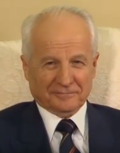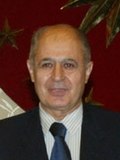No. Portrait Name(Birth–Death) Elected Took office Left office Time in office Political party Previous office Parliamentary system (1923–2018) 1 Mustafa Kemal Atatürk (1881–1938 ) 1923 29 October 1923 10 November 1938(Died in office ) 15 years, 12 days CHP 1st speaker of the Grand National Assembly 1927 1931 1935 — Abdülhalik Renda (1881–1957) — 10 November 1938 11 November 1938 1 day CHP 4th speaker of the Grand National Assembly 2 İsmet İnönü (1884–1973) 1938 11 November 1938 22 May 1950 11 years, 192 days CHP 1st prime minister of Turkey 1939 1943 1946 3 Celâl Bayar (1883–1986) 1950 22 May 1950 27 May 1960(Deposed ) 10 years, 5 days DP 3rd prime minister of Turkey 1954 1957 — National Unity Committee Milli Birlik Komitesi Chairman: General Cemal Gürsel — 27 May 1960 26 October 1961 1 year, 152 days Military 10th commander of the Turkish Army 4 Cemal Gürsel (1895–1966) 1961 26 October 1961 28 March 1966 [ a] 4 years, 153 days Independent Chairman of the National Unity Committee — İbrahim Şevki Atasagun (1899–1984) — 2 February 1966 28 March 1966 54 days AP 3rd chairman of the Senate of Turkey 5 Cevdet Sunay (1899–1982) 1966 28 March 1966 28 March 1973 7 years Independent 12th chief of the Turkish General Staff — Tekin Arıburun (1903–1993) — 28 March 1973 6 April 1973 9 days AP 4th chairman of the Senate of Turkey 6 Fahri Korutürk (1903–1987) 1973 6 April 1973 6 April 1980 7 years Independent 3rd commander of the Turkish Navy — İhsan Sabri Çağlayangil (1908–1993) — 6 April 1980 12 September 1980(Deposed ) 159 days AP 6th chairman of the Senate of Turkey — National Security Council Milli Güvenlik Kurulu Chairman: General Kenan Evren — 12 September 1980 9 November 1982 2 years, 58 days Military 17th chief of the Turkish General Staff 7 Kenan Evren (1917–2015) 1982 9 November 1982 9 November 1989 7 years Independent Chairman of the National Security Council 8 Turgut Özal (1927–1993) 1989 9 November 1989 17 April 1993(Died in office) 3 years, 159 days Independent 19th prime minister of Turkey — Hüsamettin Cindoruk (born 1933) — 17 April 1993 16 May 1993 29 days DYP 17th speaker of the Grand National Assembly 9 Süleyman Demirel (1924–2015) 1993 16 May 1993 16 May 2000 7 years Independent 12th prime minister of Turkey 10 Ahmet Necdet Sezer (born 1941) 2000 16 May 2000 28 August 2007 7 years, 104 days Independent 14th president of the Constitutional Court of Turkey 11 Abdullah Gül (born 1950) 2007 28 August 2007 28 August 2014 7 years Independent 41th minister of foreign affairs of Turkey 12 Recep Tayyip Erdoğan (born 1954) 2014 28 August 2014 9 July 2018 3 years, 315 days Independent 25th prime minister of Turkey AK Party [ b] Presidential system (2018–present) (12) Recep Tayyip Erdoğan (born 1954) 2018 9 July 2018 Incumbent 7 years, 185 days AK Party 25th prime minister of Turkey 2023 















